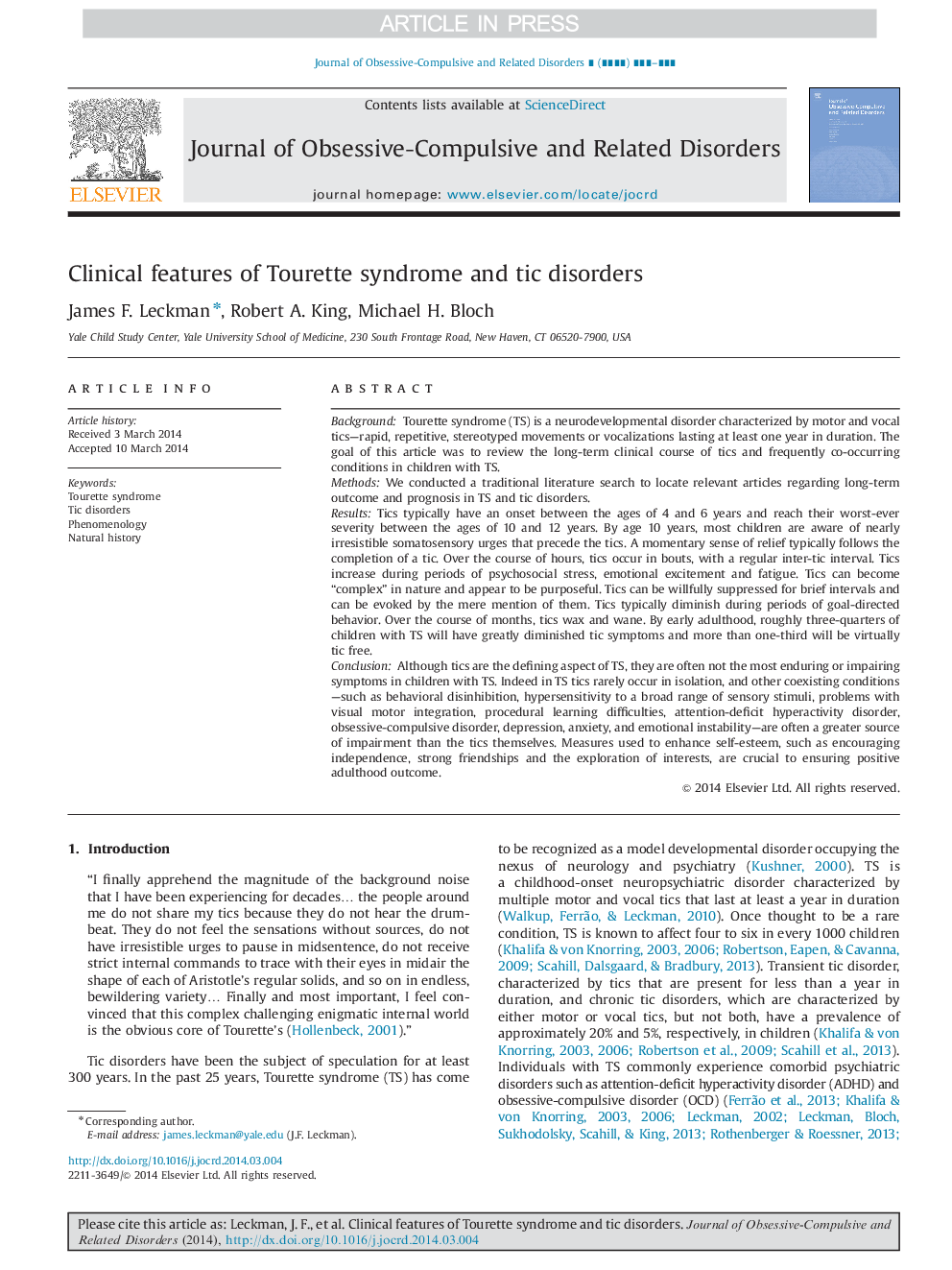| Article ID | Journal | Published Year | Pages | File Type |
|---|---|---|---|---|
| 10448942 | Journal of Obsessive-Compulsive and Related Disorders | 2014 | 8 Pages |
Abstract
Although tics are the defining aspect of TS, they are often not the most enduring or impairing symptoms in children with TS. Indeed in TS tics rarely occur in isolation, and other coexisting conditions-such as behavioral disinhibition, hypersensitivity to a broad range of sensory stimuli, problems with visual motor integration, procedural learning difficulties, attention-deficit hyperactivity disorder, obsessive-compulsive disorder, depression, anxiety, and emotional instability-are often a greater source of impairment than the tics themselves. Measures used to enhance self-esteem, such as encouraging independence, strong friendships and the exploration of interests, are crucial to ensuring positive adulthood outcome.
Related Topics
Health Sciences
Medicine and Dentistry
Psychiatry and Mental Health
Authors
James F. Leckman, Robert A. King, Michael H. Bloch,
